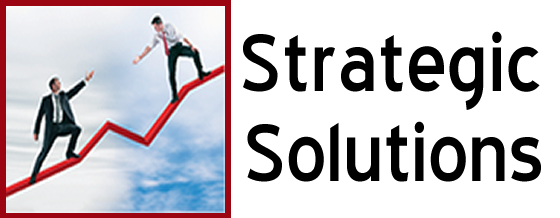The Greatest Predictor of Success
“Learn from yesterday, live for today, hope for tomorrow. The important thing is to not stop questioning. Curiosity has its own reason for existing.”
-Albert Einstein
We know their names well: Coco Chanel, Dave Kroc, Richard Branson and Walt Disney, Henry Ford, David Ogilvy, Ralph Lauren, Thomas Edison, Andrew Carnegie, David Geffen, John Mackey, and the list goes on.
They founded some of the most recognizable – and profitable brands that exist, and not only achieved fame and fortune for themselves, but their influence impacted the people’s lives across generations, regardless of whether we bought their products or not. So, what else do they have in common?
Some never finished elementary school. Others never finished high school. Others dropped out of college. But they have something else in common too – a passion -an idea – a vision and the wherewithall to put it together.
My mother used to call it street smarts. Today we call it emotional intelligence.
In my line of work, I’ve heard far too many people say to me – ‘I have this idea but why would anyone listen to me and believe me and trust in my ability to put it together”? “I don’t have a degree, so I don’t have the credibility.” “I don’t know if I know enough to make it happen.”
Nonsense. We’ve all heard stories about people who graduated top of their classes and are degreed up the wazoo who couldn’t hold a job, while others who lacked the additional years of education were at the top of their game in the business world. Theory is something anyone can learn, but in the real world experience is the trump card. How we assimilate data, interpret it and put it to use in our lives, provides us with the ability to not only perceive, control and evaluate our own feelings and emotions, but those of others as well. More often than not, emotional intelligent people are more likely to turn plans into strategies, motivation into action and dreams into reality.
That doesn’t mean that people who are highly educated aren’t emotionally intelligent; nor does it mean that people who are not highly educated are born with the gift of emotional intelligence.
What it does mean, quite literally, is that the most successful leaders have the capacity to perceive, assimilate information and act using both the intellectual and emotional centers of their brains.
Some say it’s innate while others believe it can be developed. I believe that yes, some people may be born witih that predisposition, but everyone can learn to be more attuned to themselves and to others and act based on their understanding of social and emotional signals, and increased awareness.
Emotional Intelligence is categorized by how you perceive emotions, reason with emotions, understand emotions, and manage them. So can you rate your emotional intelligence?
Here are some signs of emotional intelligence.
- You’re aware of your own strengths and weaknesses. You’ve learned to build on your strengths and carry them forward with you.
- You love understanding why people do what they do. You’re adept at reading body language, body language and behavior.
- You’re not afraid to lead the way. You understand that actions speak louder than words. You don’t just say what you mean, you put yourself ‘out there’ and set an example.
- You live in the present. You don’t wallow in the past. You’ve learned from it and moved on. You approach ‘today’ as a learning experience. The future doesn’t scare you. You understand that no matter how well you plan, you can’t predict what tomorrow holds so regardless you’ll find your takeaways and enjoy the ride.
- You practice active listening.
- You understand your triggers. You understand your hot spots and what pulls your strings and don’t let negativity draw you in. You focus on what’s positive.
- You have an affinity for people – and they know it. You have a natural curiosity about everything and have a way of drawing people to you. You have the capacity to motivate and inspire confidence.
- People trust you. You understand their needs and motivations and demonstrate integrity in everything you do.
- When you set your sights on a goal, you succeed – and enjoy the process of getting there, even more than the outcome. It makes it more meaningful.
- You’re self-motivated.
Do you see yourself in any of the above? I bet you do. Learning how to use your emotional intelligence is an exciting adventure in itself – and very much a part of enlightened leadership.
If you want to learn more, do check out Daniel Goleman’s definitive book Emotional Intelligence: Why It Can Matter More Than IQ.
